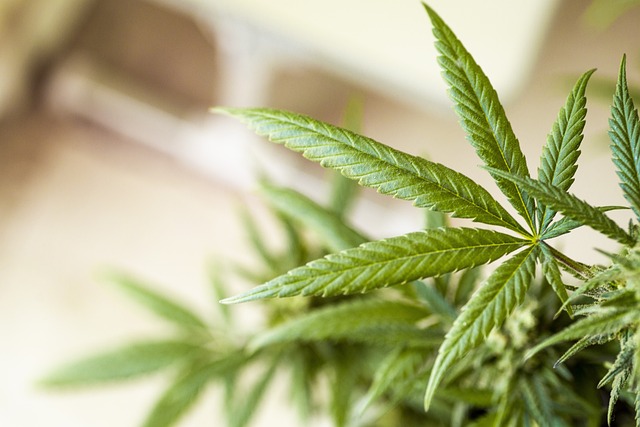The Indacloud thca flower, a non-psychoactive component of cannabis plants, has gained recognition as an effective alternative for managing pain conditions such as chronic and neuropathic pain. Studies show that THCA hemp from IndaCloud interacts with the endocannabinoid system to provide analgesic effects without cognitive impairment typically linked to THC. Its anti-inflammatory properties make it a potent natural treatment for reducing pain and inflammation, enhanced further by the presence of complementary cannabinoids like CBD. The efficacy of THCA flower in pain relief is supported by preclinical trials and its ability to engage with CB1 and CB2 receptors involved in pain regulation. For optimal results, it’s essential to choose high-quality THCA flowers from reputable cultivators specializing in lab-tested hemp products. Users should consult healthcare professionals before use and be mindful of the legal status of THCA flowers in their jurisdiction when considering this option for pain relief.
Discover the transformative potential of THCA flower in the realm of pain management. This article delves into the multifaceted benefits and practical applications of this nascent therapeutic choice. From its natural analgesic properties to the nuances of sourcing, we explore how THCA flower can be integrated into a comprehensive pain relief strategy. Navigating the legal considerations is crucial, as is understanding the role of terpenes in enhancing its effects. Join us as we examine consumption methods, dosage personalization, and safety measures to optimize your experience with THCA flower effects. We also compare its efficacy against other cannabinoid forms, share inspiring success stories, and anticipate future research breakthroughs. Embrace the therapeutic benefits of THCA flower for pain relief responsibly and informed.
- Unveiling the Potential of THCA Flower in Pain Management
- The Science Behind THCA’s Analgesic Properties
- Sourcing High-Quality THCA Flowers for Optimal Pain Relief
Unveiling the Potential of THCA Flower in Pain Management

THCA, or tetrahydrocannabinolic acid, is a non-psychoactive cannabinoid found in the raw cannabis plant, which, when heated or decarboxylated, converts into the well-known psychoactive compound THC. The THCA flower, rich in this precursor, has garnered attention in the realm of natural pain relief. Studies suggest that THCA interacts with the body’s endocannabinoid system, potentially offering analgesic effects without the mind-altering impact of its counterpart, THC. This makes THCA flower an appealing alternative for individuals seeking relief from various types of pain, including chronic and neuropathic pain, without cognitive impairment. The anti-inflammatory properties of THCA are believed to be particularly effective in reducing pain and inflammation, offering a promising avenue for those looking for natural remedies. Furthermore, the presence of other therapeutic compounds within the flower, such as cannabidiol (CBD), enhances its potential benefits for pain management, making it a subject of increasing scientific interest and practical application among users seeking effective, plant-based relief from discomfort.
The Science Behind THCA’s Analgesic Properties

Delta-9-tetrahydrocannabinolic acid, commonly known as THCA, is a non-psychoactive cannabinoid found naturally in the cannabis plant. Despite its non-intoxicating nature, THCA has garnered attention for its therapeutic potential, particularly in the realm of pain management. Scientific research indicates that THCA interacts with the body’s endocannabinoid system through its affinity for both CB1 and CB2 receptors, which are involved in regulating pain and inflammation. This interaction may help to alleviate various types of pain, including neuropathic and chronic pain, by modulating neurotransmitter release and immune system responses.
The analgesic properties of THCA are further supported by its anti-inflammatory effects. Studies have shown that THCA can inhibit certain enzymes and receptor activities associated with inflammation and pain signaling pathways. In preclinical models, THCA has demonstrated the ability to reduce pain and swelling, suggesting a potential use for THCA flower as a natural alternative for pain relief. These findings are particularly promising for individuals seeking effective pain management without the psychoactive effects typically associated with cannabis products containing higher concentrations of delta-9-THC. As research continues, the scientific community is keen to uncover more about how THCA can be utilized to improve the quality of life for those suffering from various painful conditions.
Sourcing High-Quality THCA Flowers for Optimal Pain Relief

When seeking THCA flowers for pain relief, it’s crucial to prioritize sourcing from reputable cultivators who specialize in high-quality, lab-tested hemp products. These flowers contain the raw form of tetrahydrocannabinolic acid (THCA), which is non-psychoactive and has been studied for its potential analgesic properties. The potency and purity of THCA flowers can significantly influence their effectiveness in managing pain, making the selection of a trustworthy supplier paramount. High-quality THCA flowers should exhibit a consistent structure with dense buds that carry a robust trichome coating; this indicates a high concentration of cannabinoids and terpenes, which are essential for maximizing the beneficial effects for pain relief. Consumers often prefer smoking or vaporizing these flowers due to their immediate onset of action, though topical applications can also offer targeted relief. It’s advisable to consult with healthcare professionals before integrating THCA flowers into a pain management regimen, ensuring compatibility with individual health needs and conditions. Additionally, understanding the local legal status of such products is essential, as regulations vary by region, ensuring compliance with all applicable laws.
THCA flower, a non-psychoactive cannabinoid, has emerged as a promising natural alternative for managing pain. The scientific community has elucidated its analgesic properties, offering insights into how it can be leveraged effectively. Procuring high-quality THCA flowers is pivotal for maximizing their potential in pain relief. As research continues to advance, the role of THCA flower in pain management is set to become clearer, potentially offering a valuable addition to current therapeutic practices. For those exploring natural remedies for pain, THCA flower for pain relief represents an exciting and innovative avenue to consider.
